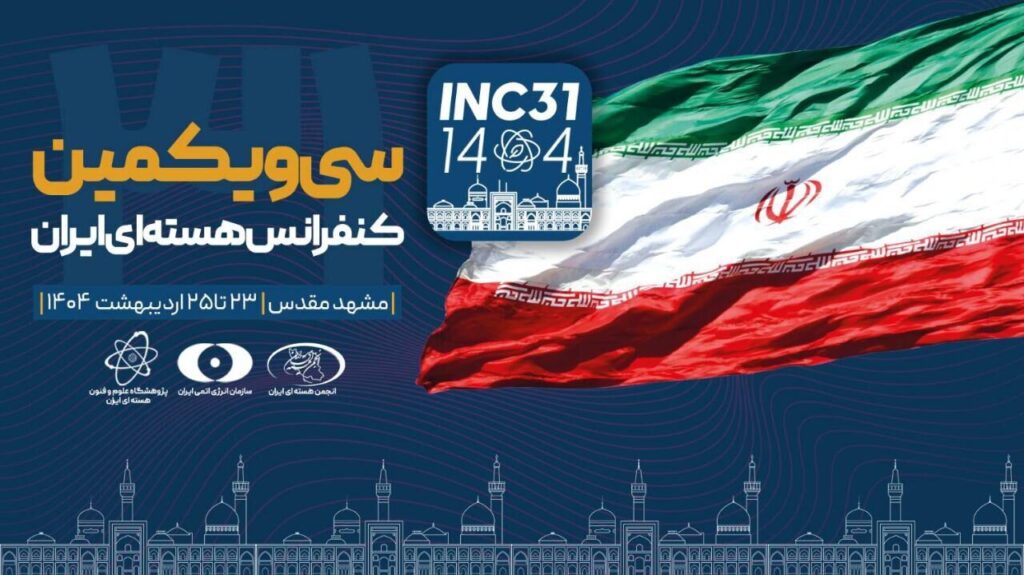TEHRAN – The 31st edition of Iran’s annual nuclear conference began in Mashhad on Tuesday and was hosted by the Iranian Nuclear Association with support from the Iranian nuclear agency (AEOI).
The event, the foundation of scientific exchange, focuses on advancing nuclear technology for private applications and strengthening national cooperation in this field.
The main themes of this year’s conference include “Radiation and the Applications of the Latest Radiation Technology,” “Fusion Physics and Plasma Technology,” “Nuclear Reactors and Quantum Technology,” “Nuclear Fuel Cycle and Materials,” and “Nuclear Governance and Sustainable Development.”
The first day featured presentations on topics such as “Research Reactors and Its Global Applications,” “Netron Imaging System of Tehran Reactors,” and advances in radioactive isotopes production and gem irradiation technology.
“The nuclear industry is the pillar of Iran’s strength.”
At another event in Karaj on Tuesday, AEOI director Mohammad Eslami highlighted his unwavering commitment to Iran’s nuclear program, saying “the nuclear industry is a source of wealth and strength for the Iranian state, and is neither negotiable nor subject to compromise.”
He emphasizes that Iran paid a “heavy price” to achieve its nuclear scientific capabilities, calling them sovereignty and national achievements.
Eslami highlighted the role of AEOI in transforming scientific knowledge into concrete technologies that benefit the public.
He cited the recent establishment of a cold plasma wound treatment clinic in the Alborz province as an example, saying, “We take pride in making this service accessible to people.”
The AEOI chief also addressed geopolitical challenges and noted that Iran is a target of foreign enemies who have long tried to undermine its progress.
“Love and dedication to our country are eternal necessities for our country,” he said, reaffirming the country’s resolve to protect its technical sovereignty.
Iran’s nuclear program continues to expand peacefully in its application, with Eslami reporting domestic production of more than 70 types of radioactive drugs distributed to 230 medical centres.
According to AEOI Chief, approximately 85,000 radiology technicians currently operate in 6,500 healthcare facilities nationwide, reflecting the integration of the program into public welfare.
In his remarks, Eslami reiterated that nuclear technology serves as a “significant driver of progress” across sectors, including medicine, agriculture and industry.

